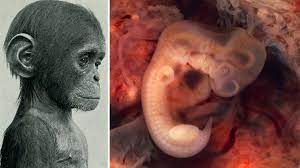
Breaking News
 The Domino Effect: How a U.S. Attack on Iran Could Unleash Global Catastrophe
The Domino Effect: How a U.S. Attack on Iran Could Unleash Global Catastrophe
 The True History of Glyphosate, Derived from Deadly Organophosphate Nerve Agents like Sarin...
The True History of Glyphosate, Derived from Deadly Organophosphate Nerve Agents like Sarin...
Top Tech News
 New Spray-on Powder Instantly Seals Life-Threatening Wounds in Battle or During Disasters
New Spray-on Powder Instantly Seals Life-Threatening Wounds in Battle or During Disasters
 AI-enhanced stethoscope excels at listening to our hearts
AI-enhanced stethoscope excels at listening to our hearts
 Flame-treated sunscreen keeps the zinc but cuts the smeary white look
Flame-treated sunscreen keeps the zinc but cuts the smeary white look
 Display hub adds three more screens powered through single USB port
Display hub adds three more screens powered through single USB port
 We Finally Know How Fast The Tesla Semi Will Charge: Very, Very Fast
We Finally Know How Fast The Tesla Semi Will Charge: Very, Very Fast
 Drone-launching underwater drone hitches a ride on ship and sub hulls
Drone-launching underwater drone hitches a ride on ship and sub hulls
 Humanoid Robots Get "Brains" As Dual-Use Fears Mount
Humanoid Robots Get "Brains" As Dual-Use Fears Mount
 SpaceX Authorized to Increase High Speed Internet Download Speeds 5X Through 2026
SpaceX Authorized to Increase High Speed Internet Download Speeds 5X Through 2026
 Space AI is the Key to the Technological Singularity
Space AI is the Key to the Technological Singularity
 Velocitor X-1 eVTOL could be beating the traffic in just a year
Velocitor X-1 eVTOL could be beating the traffic in just a year
MONKEY ME, MONKEY YOU First part-human, part-monkey embryo created by scientists sparks outcry

Researchers have grown human stem cells in monkey embryos to try and better understand how the cells communicate.
Some people are totally against this kind of experimentation and think it could lead the way to "human-nonhuman" creatures.
The controversial embryos were made at the Salk Institute in California.
They're scientifically known as monkey-human chimeras.
Human stem cells, known for the ability to become different types of cells, were injected into macaque embryos in a petri dish.
The scientists hope their work could be used to create organs for transplants and teach us more about human development and disease progression.
Professor Juan Carlos Izpisua Belmonte led the research.
He also worked on the first human-pig hybrid in 2017.
He said: "These chimeric approaches could be really very useful for advancing biomedical research not just at the very earliest stage of life, but also the latest stage of life."
The human and macaque monkey embryos were monitored for around 20 days and have since been destroyed.

 TGIF: Immigration and Culture
TGIF: Immigration and Culture Does It Smell Like Victory?
Does It Smell Like Victory?


